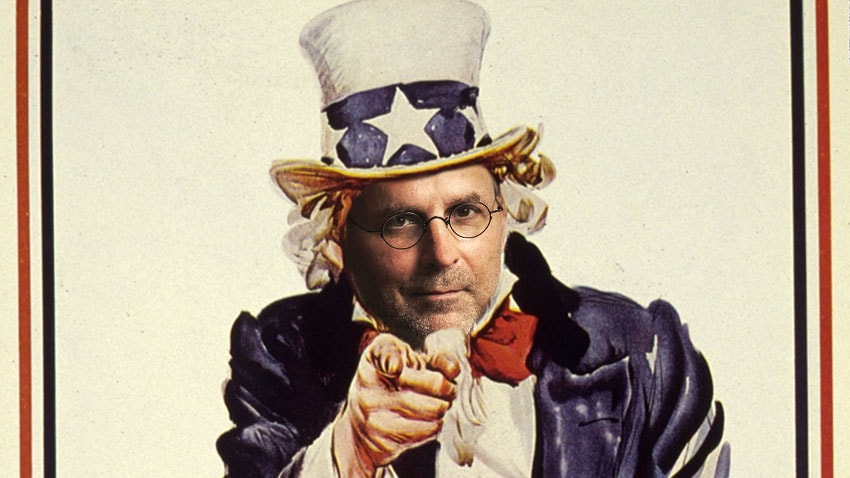
In an April 7, 2019 essay published in LNP/LancasterOnline, I announced my candidacy for President of the United States. My platform consisted of the fundamental principle of “A Conga in Every Home”.
It was my belief that there would be no better way to address issues of education, healthcare, economic development, gun control, family values, and a deeply divided nation and world than bringing music into every home. Not only do I continue to believe in that fundamental principle, given the seismic events that have rocked the world over the past four months, but I am also convinced that this principle is more important than ever.
The world has changed dramatically since my initial announcement. We now face not only an enormous public health crisis but also a widespread, deepening economic crisis. And then came the murder of George Floyd by a Minneapolis police officer, resulting in worldwide “Black Lives Matter” protests.
The combination of the effects of the pandemic and the Floyd killing has exposed for the world to see, the systemic inequality and injustice that permeates, from top to bottom, our entire system of government and society. From education to health care, from economic opportunity to housing, and from our judicial system to our prison system, the veil of American exceptionalism has been revealed for the world to see as maybe not being so “exceptional” for all of our citizens.
So how does my campaign platform of a “Conga in Every Home” apply to this new and uncertain world?
Not only are the principles initially outlined in my platform more relevant than ever, but the confluence of current events have also made it clear that there is another issue that was not mentioned in my original platform that has emerged. And, once again, it is an issue that music can play a vital role in addressing. Specifically, music’s role as a driver of social change. Music has always been a powerful platform to frame, highlight, and spur change regarding issues relating to inequality, social and racial justice.
While we all have a responsibility to “bear witness” to the events of the world around us, for musicians and artists, that responsibility is far more fundamental. It is the essence of what they do. Legendary musician and activist Nina Simone articulated this well. “You can’t help it. An artist’s duty is to reflect the times.”
In short, musicians and artists have to continue to provide a “mirror” on society and “call out” inequality and injustice. Music can provide musicians a powerful platform to leverage their voices to illuminate injustice and spur debate and action. As we struggle to make good on the fundamental promise of America: liberty and justice for all, music and musicians will play an important role in challenging us to fulfill that promise.
It is also critical that we invest in music education because the lessons in cooperation, tolerance, empathy, personal responsibility, creativity, and communication and listening skills that are learned through music participation are precisely the type of skills necessary to develop the empathy and understanding required to bridge cultural differences. It is in that way that music teaches them empathy and acceptance that is vital in creating a society of culturally literate, understanding, and tolerant people.
Finally, music can unite us in unique and uplifting ways. It is the universal language. And that universality is why its power and potential to break down barriers, increase understanding, and build bridges is what makes it so effective as a tool to build community. In these days of mistrust, unrest, and division we need to utilize this powerful tool to rebuild and unite our communities.
The pandemic has also emphatically illuminated the power and potential of music’s impact on public health.
Not only are we facing a public health crisis relating to the virus, but it is also clear that following closely on the heels of the virus has been an emotional and mental health crisis within our populace. The impact of social separation and isolation on issues relating to depression, loneliness, hopelessness, and suicide are growing.
Research tells us that music is one of our most powerful therapeutic tools in helping to mitigate the effects and impact of depression, anxiety disorders, stress, loneliness, and isolation. Music can elevate an individual’s mood resulting in a more positive outlook and offers a pathway to “connecting” with other humans.
In short, music heals. And these days, we need healing. The importance of harnessing the power and potential of music as a community-building, racial justice, and public health tool has never been greater. Our communities are going to need the soothing, healing, and “connectedness’ that music and the arts are uniquely qualified to provide.
Issues surrounding isolation, hopelessness, injustice, and inequality are excruciatingly difficult and painful. Music can soothe our soul and can provide a sense of connection and commonality in a world of anguish and uncertainty. Music can and will contribute to our efforts come out on the other side of this crisis stronger, more tolerant, healthier, and more connected and empathetic than ever as we all search for common ground and ultimately, peace.
I am John Gerdy and I approve this message.